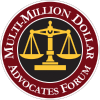KBS REIT III
Understanding the Risks of Investing in KBS REIT III
For years, non-traded real estate investment trusts (REITs) like KBS REIT III have been marketed as attractive investment opportunities. With promises of steady income and access to high-quality commercial real estate, these vehicles have drawn significant interest from investors seeking diversification and reliable returns. However, many investors have faced unexpected challenges, including substantial losses, illiquidity, and declining asset values. Recent reports of a decline in the value of KBS REIT III highlight the importance of understanding the risks associated with non-traded REITs and taking action to protect your investment.
Declining Value of KBS REIT III
In recent years, KBS REIT III has experienced a significant drop in value, leaving many investors concerned about their financial futures. Originally launched in 2010 with a price of $10 per share, the REIT’s current valuation has fallen well below this level. Some reports indicate that that REIT may now be worth approximately $1 per share.
Such declines can be attributed to various factors, including changes in the commercial real estate market, interest rate fluctuations, and management decisions that may not align with the best interests of shareholders. For instance, non-traded REITs like KBS REIT III often carry higher fees and expenses compared to publicly traded REITs. These costs can erode returns over time, even in favorable market conditions. Furthermore, non-traded REITs are inherently illiquid, meaning that investors cannot easily sell their shares on a secondary market. This lack of liquidity compounds the financial strain when the value of the investment declines.
The Risks of Non-Traded REITs
KBS REIT III exemplifies many of the risks associated with non-traded REITs, including:
- Illiquidity: Investors are often locked into these investments for extended periods, unable to access their funds when needed.
- High Fees: Upfront fees, management fees, and other costs can significantly reduce overall returns.
- Lack of Transparency: Non-traded REITs may provide limited information about their financial health, making it difficult for investors to assess performance accurately.
- Market Volatility: While non-traded REITs are less correlated with stock market volatility, they are still subject to fluctuations in real estate values and interest rates.
- Overreliance on Distributions: Many non-traded REITs distribute dividends from borrowed funds or capital rather than income, which can mask underlying financial weaknesses.
What Can Investors Do?
If you have invested in KBS REIT III and are concerned about its declining value or your ability to recover your investment, it is essential to take proactive steps. While the risks of non-traded REITs are often disclosed in offering documents, investors may not have been fully informed about the implications of these risks at the time of sale. In some cases, financial advisors or brokerage firms may have failed to act in the best interests of their clients, recommending non-traded REITs to investors for whom these products were unsuitable.
Speak to an Investment Litigation Attorney
Investors who have suffered losses in KBS REIT III may have legal options to recover their funds. As an investment litigation attorney, I have seen firsthand how improper sales practices and inadequate disclosure can lead to significant financial harm. If you believe your advisor misrepresented the risks of KBS REIT III or recommended it without considering your financial goals and risk tolerance, you may be entitled to compensation.
Our firm specializes in representing investors in disputes involving non-traded REITs, including KBS REIT III. We can help you assess your case, identify potential claims, and pursue recovery through arbitration, mediation, or litigation.







